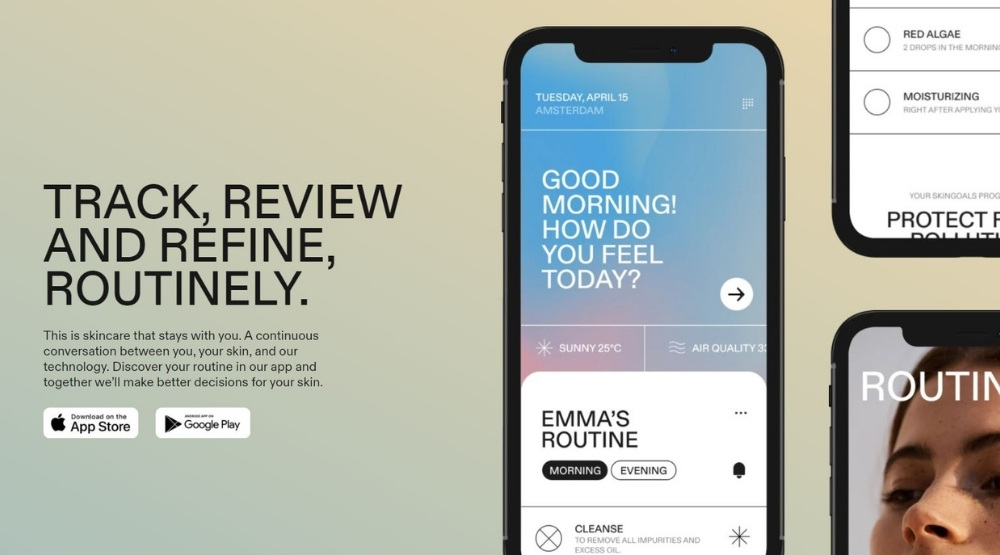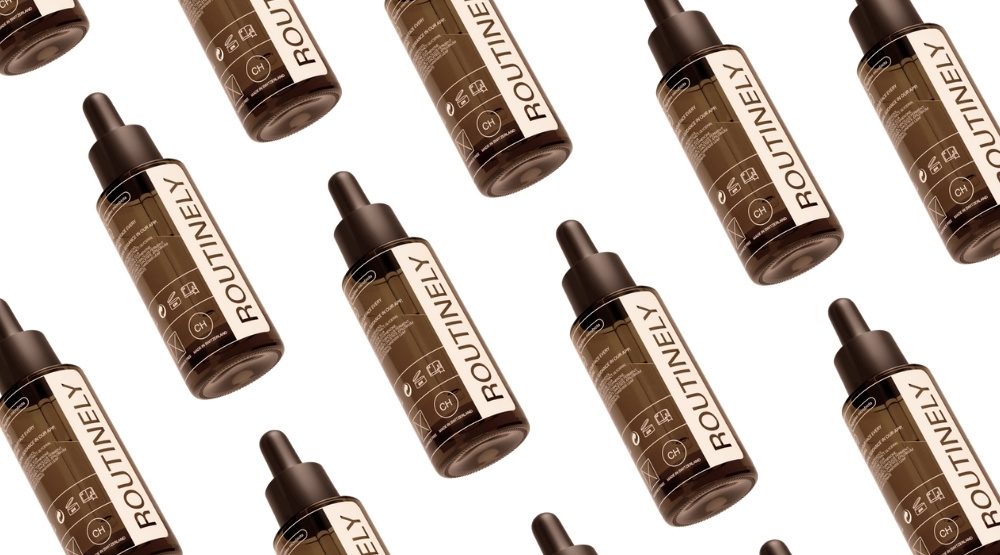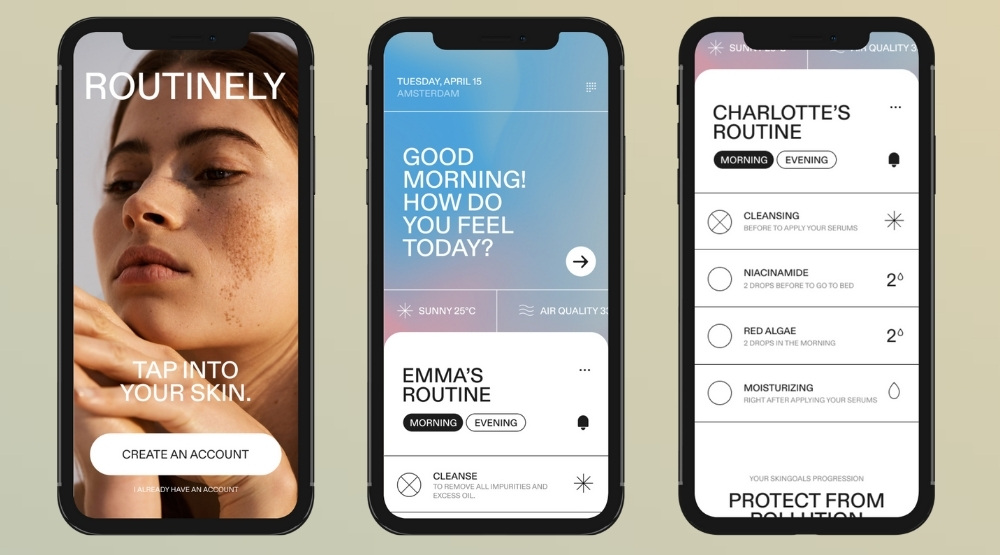More and more technology is being baked into beauty brands offerings. And the trend for tech-led beauty only feels like it accelerated exponentially in the last year and a half. Brands were forced to pivot hard into the realm of all things digital as they suddenly had to reach and sustain relationships with everyone from their respective living room sofas. So it’s becoming more common to see tech-based beauty, like Dutch digital-first start-up Routinely skincare, which launched last week with 13 serums, a quiz and a native app that engages with customers beyond the purchase funnel.
Thanks to the quiz results and learning AI employed in the app, personalised products are selected and skincare routines refined daily, down to the tiniest factor, like what the weather is that day where they live, offering adjustments to the person’s routine to accommodate things that could affect the skin.

German personal care giant Bieresdorf invested in Routinely skincare through its Oscar and Paul beauty incubator. The company has also just launched personalised skincare range O.W.N. (Only What’s Needed), showing the company’s new commitment to a new digital-first approach and tech-enabled customisation in the beauty sector. “Each product is specially made for the brand’s individual consumers…. ” says the Beiersdorf media release. In the course of the online shopping process, not only the formulas but also the packaging is personalized so that the consumers’ first names form a unit with the brand name – for example “MARY’S O.W.N”. Their individual personality thus once again becomes the focus of the very shopping experience.”

The launch of Routinely happened within a day of Google opening up its Vertex AI platform for public use, so that any beauty brand industrious enough to take advantage of it can create innovative digital tools for its customers. For example, according to Google, L’Oreal’s innovative diagnostic tool already uses the learning technology to offer personalised skincare advice. “ModiFace’s skin diagnostic is trained on thousands of images from L’Oréal’s Research & Innovation, the company’s dedicated research arm. Bringing together L’Oréal’s scientific research combined with ModiFace’s AI algorithm, this service allows people to obtain a highly precise tailor-made skincare routine.”
Digital-first beauty brands, like Beiersdorf-backed Routinely, were on the rise before Google made it’s AI platform available for use by any business. Plenty of brands that aren’t digital first have also heeded the demand for customer-specific products and services, like mesoestetic with its new advanced diagnostic tool and Q+A with its skincare quiz. We have noticed more and more brands start to follow suit. And it seems that AI-enabled, hyper-customised, personalised skincare advice, product formulation and marketing looks set to be the future for beauty businesses, even B2B.
—
Read the current issue of our digital magazine here:
For more news and updates, subscribe to our weekly newsletter.
—
Have an idea for a story or want to see a topic covered on our site and in our pages? Get in touch at info@professionalbeauty.com.au.

